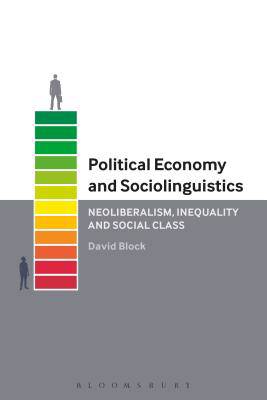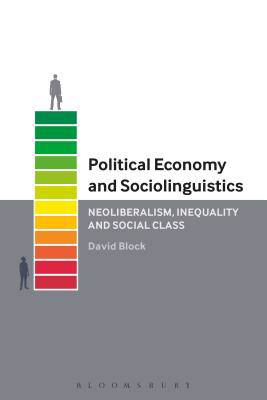
Je cadeautjes zeker op tijd in huis hebben voor de feestdagen? Kom langs in onze winkels en vind het perfecte geschenk!
- Afhalen na 1 uur in een winkel met voorraad
- Gratis thuislevering in België vanaf € 30
- Ruim aanbod met 7 miljoen producten
Je cadeautjes zeker op tijd in huis hebben voor de feestdagen? Kom langs in onze winkels en vind het perfecte geschenk!
- Afhalen na 1 uur in een winkel met voorraad
- Gratis thuislevering in België vanaf € 30
- Ruim aanbod met 7 miljoen producten
Zoeken
Political Economy and Sociolinguistics
Neoliberalism, Inequality and Social Class
David Block
Hardcover | Engels
€ 228,95
+ 457 punten
Uitvoering
Omschrijving
This book explores how political economy intersects with sociolinguistics, specifically how neoliberalism, inequality and social class mediate language in society issues. After the preface, in which the author sets the scene for the content of the book, Chapter 1 is an extensive, though selective, review of sociolinguistics research which has been framed as political economic in orientation. The chapter concludes that such research generally contains little in the way of thorough and in-depth coverage of the key ideas and conceptual frameworks said to undergird it. With this consideration in mind, Chapters 2, 3 and 4 are organised around in-depth discussions of, respectively, political economy as a general disciplinary frame; neoliberalism as the variegated variety of capitalism dominant in the world today; and stratification, inequality and social class, as phenomena intrinsic to capitalism, which in the neoliberal era have come to the fore as key issues. Drawing directly on the background provide in Chapters 2-4, Chapters 5 and 6 explore two distinct political economy-informed lines of research, on the one hand, the 'neoliberal citizen', and on the other hand, 'discursive class warfare'. The book ends with an epilogue addressing issues arising around political economy in sociolinguistics.
Specificaties
Betrokkenen
- Auteur(s):
- Uitgeverij:
Inhoud
- Aantal bladzijden:
- 248
- Taal:
- Engels
Eigenschappen
- Productcode (EAN):
- 9781474281430
- Verschijningsdatum:
- 8/02/2018
- Uitvoering:
- Hardcover
- Formaat:
- Genaaid
- Afmetingen:
- 156 mm x 234 mm
- Gewicht:
- 526 g

Alleen bij Standaard Boekhandel
+ 457 punten op je klantenkaart van Standaard Boekhandel
Beoordelingen
We publiceren alleen reviews die voldoen aan de voorwaarden voor reviews. Bekijk onze voorwaarden voor reviews.









